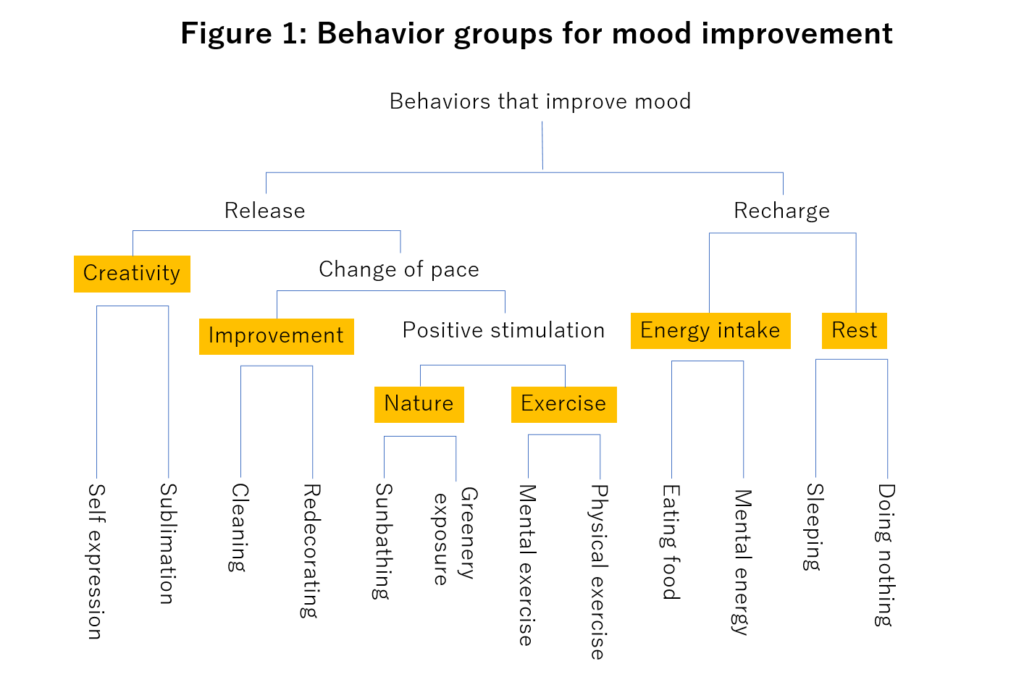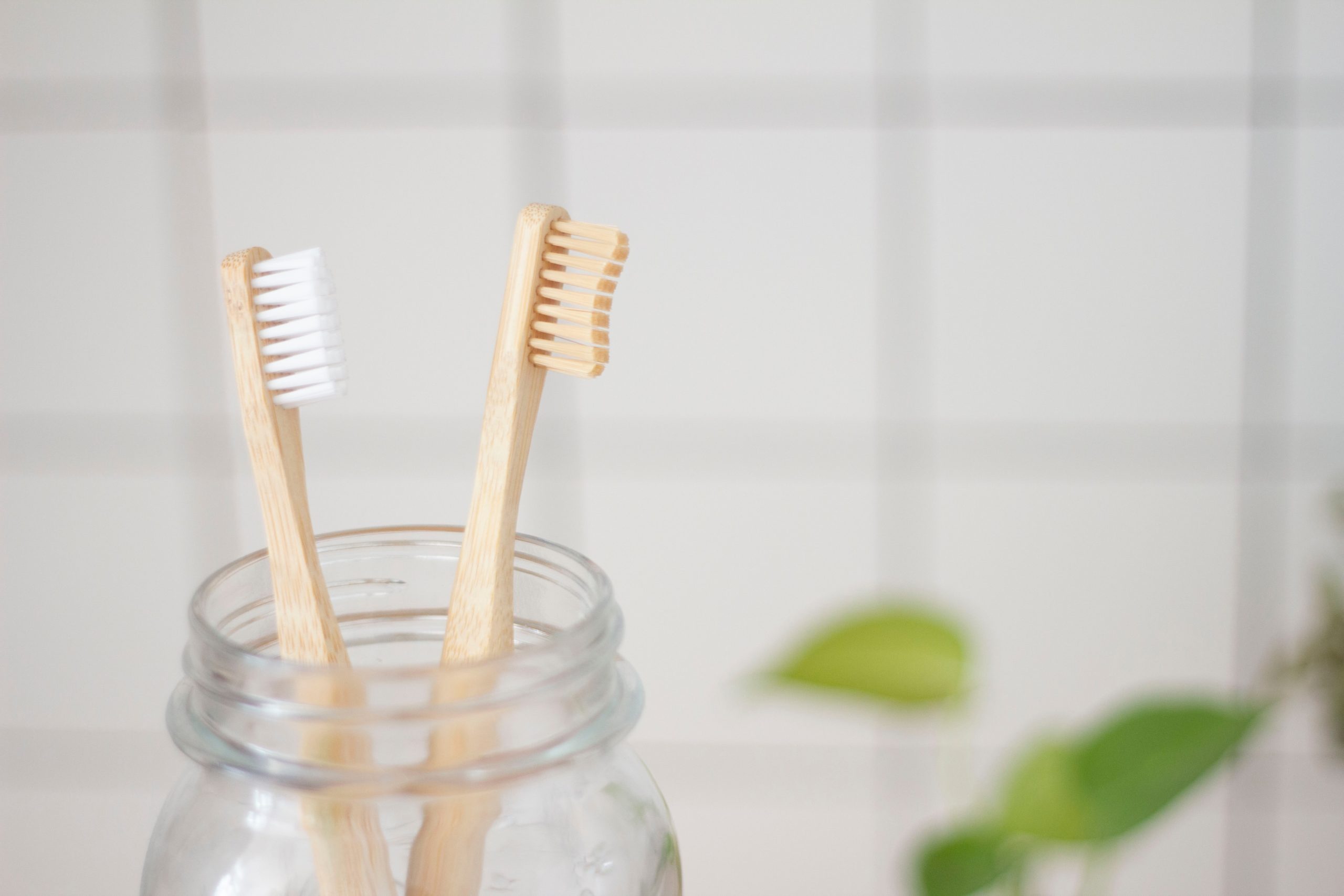Do you experience dull moments where you feel sluggish or are you in need of a pace change? A good start is to change up routines. It may sound like a cliché suggestion, but exercising, eating good food, and even utilizing certain household items can all be great activities in boosting our mood!
Contents
Release and Recharge for Mood Improvement
There are two distinct patterns of behavior that improve our mood: “releasing” and “recharging”. Releasing refers to a release of your pent up energy, through exercise or artistic means of self-expressionism. Recharging, on the other hand would be eating food or sleeping. The way your mood changes vary depending on which type of activity we choose.
Further categorization of these activities are listed in Figure 1 below:

The orange highlighted sections are the behavior groups that improve our mood – creativity, improvement, nature, exercise, energy intake, and rest. Mood improvements requires us to act on our appropriate needs and surrounding environments at the time.
For example, if our room is dirty and stressful, we can make improvements by cleaning to restore calmness again. If you’re tired and antsy, exercising, intaking appropriate nutrients, and resting can help restore positivity. If our distress is causing psychological pressure, we can improve your mood by immersing ourselves in nature, creativity, or actively participating in things that feel good and fun.
However, keep in mind that these activities may not address the root cause of the issue, which is always a good way to resolve our discomforts.

Find Mood Boosters Through Daily Routines
There are common tools and routines that can act as mood boosters according to the categories of the above chart.
For example, let’s take brushing our teeth. Typically, many people brush their teeth after they wake up and before they sleep, or perhaps after every meal. It’s a routine grooming act that helps us feel more cleanly, and many of us probably don’t put much thought into it. However, brushing has a direct effect on improving our mood. We use our “toothbrush” as a tool to clean and polish our teeth, and it can feel pleasantly refreshing. Brushing itself can induce our association to pleasant feelings and become a mood booster, as it connects to our sense of “improvement.”
Another routinely act we can take for example, is cooking. The common household item of a “knife” becomes a tool that connects with our “creativity” in addition to fulfilling our huger. A “vacuum” is a tool that helps create a cleaner environment and “improves” our surroundings. These tool-using behavior patterns are supposedly similar to actions we take when we’re displeased. Therefore, the use of a common household tool plays an effective role in boosting our moods. When we combine the six behavior groups from the Figure 1 chart above – creativity, improvement, nature, exercise, energy intake, and rest – there are endless possibilities for activities that could help in improving our mood at any time.
Mood Boosters Are All Around Us

There are a variety of activities and tools we can utilize to help ourselves feel a little better. Many of them are familiar activities within our daily lives. We all have different preferences in how we enjoy our time, whether it’s going for a drive, exercising, playing games, or having a drink. We all want to feel better when we feel distressed. If we look around, there are many ways to feel better within our immediate surroundings. You’d be pleasantly surprised with all the casual activities and tools that can act as an easily accessible mood booster.
→ Looking to improve your mental health? Try the SELFMIND app FREE for 1 week!
If you’re looking for more tips on how to care for your mental health, check out some of our past blog posts!
Image: Unsplash
Furusawa, K., Terauchi, F., Kubo, M., & Aoki, H. (2007). Research of Action and Tools to Make Feelings Better. Japanese Society for the Science of Design: 54th Annual Conference. doi: 10.11247/jssd.54.0.A20.0
References:



